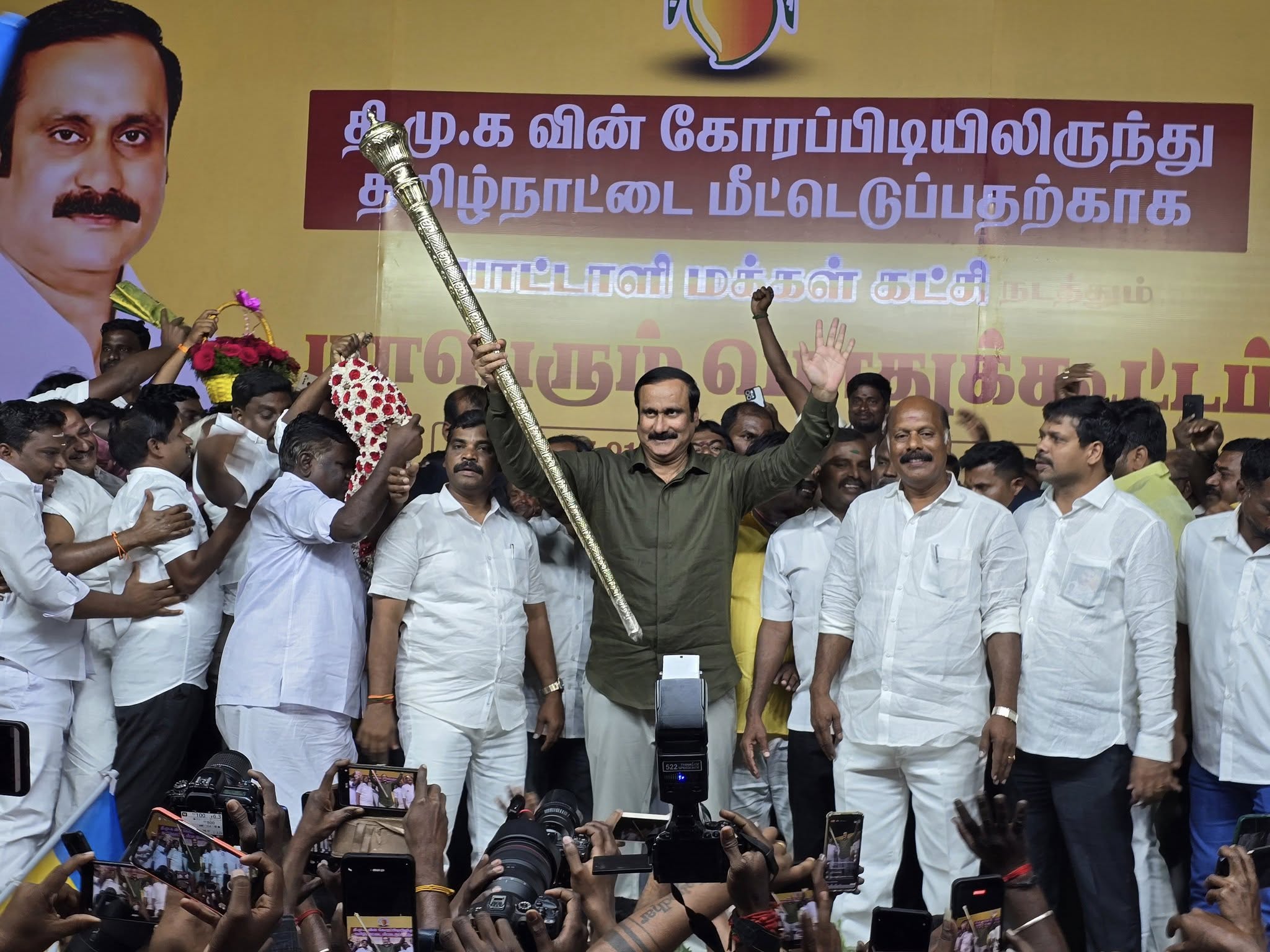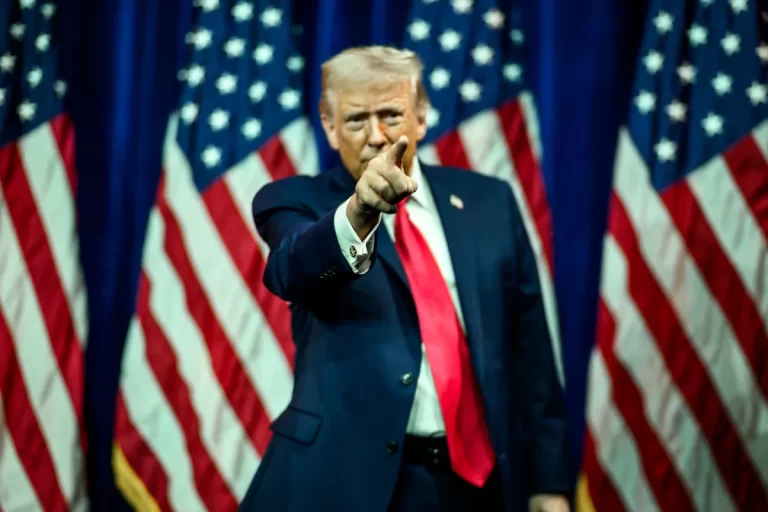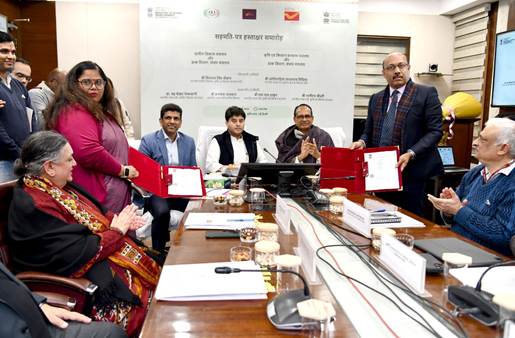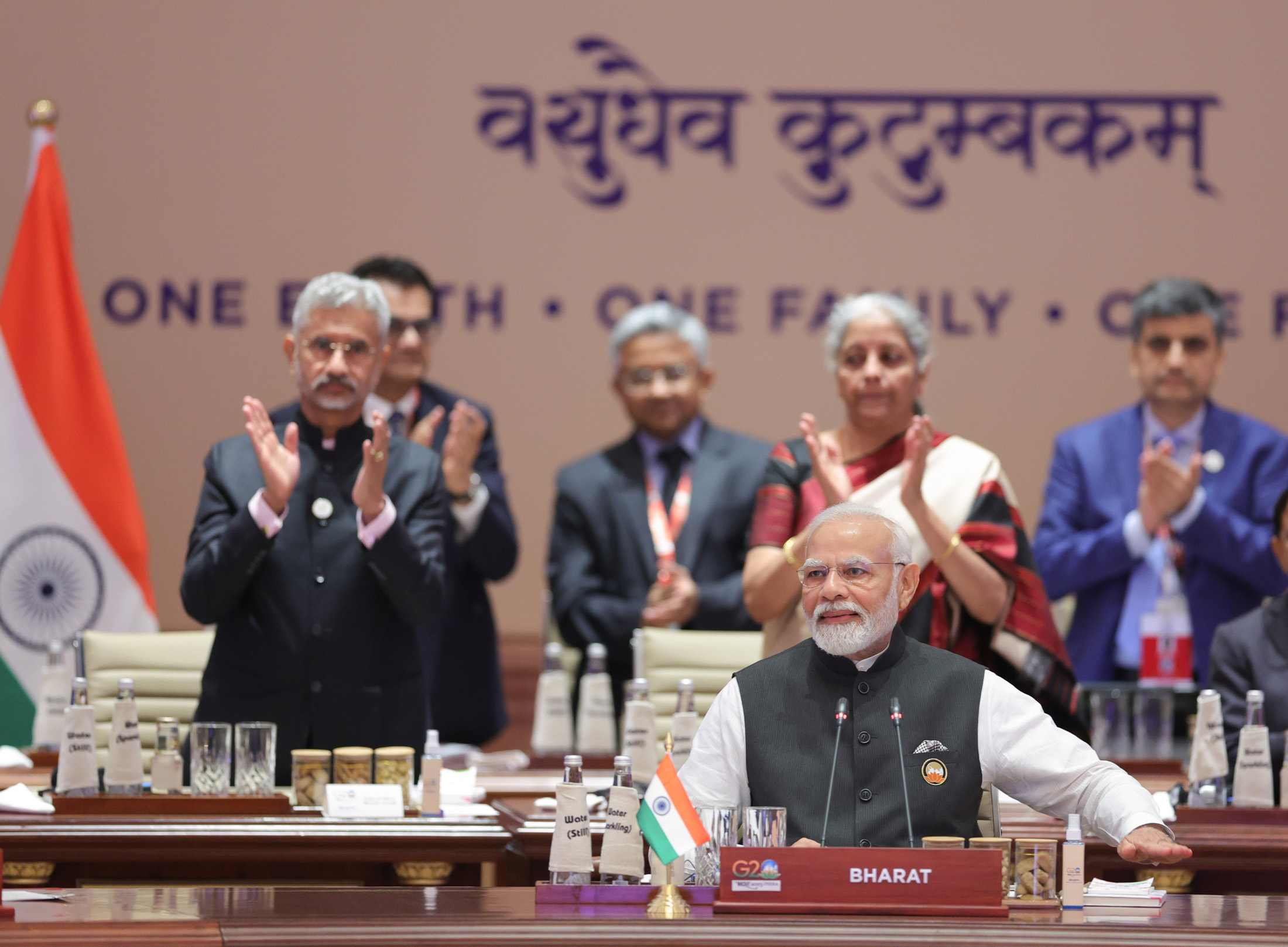
PMs remarks at G20 Summit on One Family at Bharat Mandapam, in Pragati Maidan, New Delhi on September 09, 2023.
![]() By G Krishna Mohan Rao*
By G Krishna Mohan Rao*
Significantly, the G20 New Delhi Leaders’ Declaration referred to war ‘in’ and not ‘against’ Ukraine in a major shift in language from the Bali Declaration
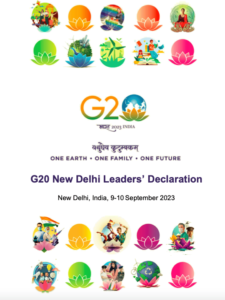 New Delhi: In what is being seen as a major victory for Indian diplomacy, consensus has been reached on the New Delhi G20 Leadership Declaration. Announcing the adoption of the New Delhi Declaration at the Summit, Prime Minister Narendra Modi thanked G20 sherpas, ministers and all officials for working hard to make the joint declaration possible. The consensus came after negotiations were held for a prolonged period on the outcome document that had been held up over reference to the Ukraine crisis.
New Delhi: In what is being seen as a major victory for Indian diplomacy, consensus has been reached on the New Delhi G20 Leadership Declaration. Announcing the adoption of the New Delhi Declaration at the Summit, Prime Minister Narendra Modi thanked G20 sherpas, ministers and all officials for working hard to make the joint declaration possible. The consensus came after negotiations were held for a prolonged period on the outcome document that had been held up over reference to the Ukraine crisis.
The 37-page consensus declaration adopted by the G20 leaders today called for comprehensive, just, and durable peace in Ukraine and urged member states to refrain from the threat of use of force to seek territorial acquisition or act against the territorial integrity of any state. Significantly, the G20 New Delhi Declaration referred to war ‘ in’ and not ‘against’ Ukraine in a major shift in language from the Bali Declaration. The declaration also stressed that the use, or threat of use, of nuclear weapons be “inadmissible”. Interestingly, Russia was not seen as an aggressor directly.
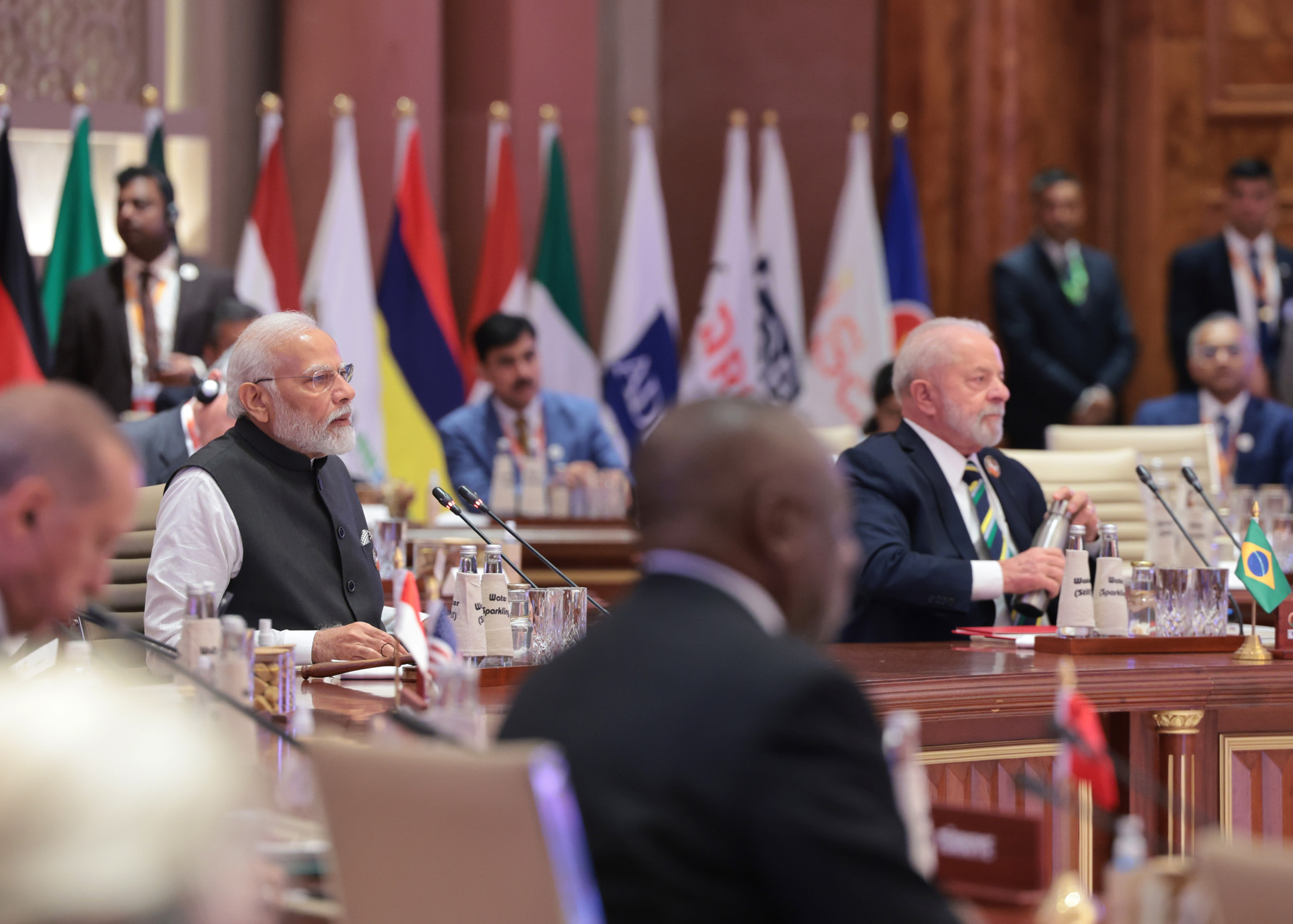
Amidst wide reports of unlikely consensus at the G20 summit due to the Russia-Ukraine war, it was a real breakthrough that a 100 per cent consensus under the leadership of India’s Presidency of the G20 group under Prime Minister Narendra Modi could be achieved. In fact, diplomatic channels felt that whatever the New Delhi declaration, it would come on the last day, that is tomorrow. In the overall context as well, Indian diplomacy proved to have a really productive day on other fronts as well. By all means, today, India proved to be the leader of the Global South under the leadership of Modi.
On the margins of the G20 Leaders’ Summit in New Delhi the leaders of India, Brazil, South Africa, and the United States, met as the G20’s current and next three Presidencies, to reaffirm their shared commitment to the G20 as the premier forum for international economic cooperation to deliver solutions for our shared world and committed to build on the “historic progress of India’s G20 Presidency to address global challenges”.
Further, Prime Minister Modi also launched the India-East-Europe Economic Corridor during the ongoing G20 summit. US President Joe Biden along with French President Emmanuel Macron hailed the Indian Prime Minister for this historic launch. As explained by the Prime Minister, the newly launched Corridor will become an effective medium for economic integration of India, the Middle East and Europe.
Another major win for Indian diplomacy at the Summit was the inclusion of the African Union (AU) in the G20 summit. Considered a key outcome of the G20 New Delhi Declaration, many countries thanked Prime Minister Modi for his initiation and effort on this front. Amidst clappings, Prime Minister Modi invited the Head of the African Union, the President of Comoros Azali Assoumani, to take his seat as a permanent member of the G20. As he walked to his seat, escorted by India’s Minister of External Affairs Dr. Subrahmanyam Jaishankar, Assoumani stopped and warmly hugged Modi before taking his seat. Modi said the presence of AU will make G20 inclusive and motivate the world to work for a more equitable and developed socio-economic order.

Moreover, the leaders of India, Brazil, South Africa, and the United States, together with the World Bank President, welcomed the G20’s commitment to build better, bigger, and more effective multilateral development banks. “This commitment underscores what we can do, by working together through the G20, to support our people toward a better future,” they said.
In other words, the G20 Summit, which began at the Bharat Mandapam in the National capital this morning turned out to be a historical and path-breaking New Delhi Declaration with 100 per cent consensus on all developmental and geo-political issues. The new geopolitical paras are a powerful call for Planet, People, Peace and Prosperity in today’s world —based on the Indian concept of “Vasudeva Kutumbakam”.
Modi on his part, lauded the adoption of the New Delhi Leaders’ Declaration and expressed his gratitude to all fellow G20 members for their support and cooperation. Sharing the digital copy of the New Delhi Leaders’ Declaration, the Prime Minister posted on X: “History has been created with the adoption of the New Delhi Leaders’ Declaration. United in consensus and spirit, we pledge to work collaboratively for a better, more prosperous, and harmonious future. My gratitude to all fellow G20 members for their support and cooperation.”
The major takeaway of the ongoing Summit seems to be the full backing of the United States to India on all the initiatives and moves at the Summit. Till today, there were wide negative reports in the media and also a lot of pessimism in diplomatic circles about the unlikely consensus at the New Delhi Declaration.
The India-US joint statement last night was another major takeaway from the G20 Summit. It is obvious that India-USA relations have further strengthened with the support for India from the US with regards to technology transfer in the fields of nuclear energy to semiconductors to defence.
Further, a new railway and shipping project proposed by the US that will link India with West Asia and Europe is likely to be signed between the US, India, Saudi Arabia and the United Arab Emirates (UAE) at the sidelines of the ongoing G20 Summit. Sources said that this move is likely to challenge China’s Belt and Road Initiative. This project seems to be a key initiative the White House is pushing in the Middle East as China’s influence in the region is growing.
Later, the External Affairs Minister Dr. Jaishankar, along with India’s Finance Minister Nirmala Sitharaman and other officials, at the press conference, said that before the consensus on the New Delhi Declaration was announced, 125 countries were contacted in the process. They highlighted the core points of the New Delhi Declaration, which according to them were “strong, sustainable, balanced and inclusive growth; accelerating progress on the Sustainable Development Goals; green development pact for a sustainable future; multilateral institutions for the 21st century and reinvigorating multilateralism”.
– Senior journalist


